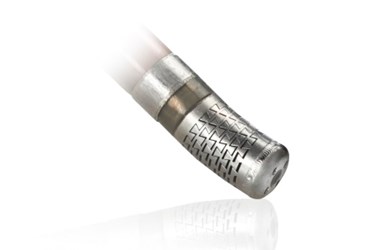St. Jude Medical's New Ablation Catheter Receives FDA Approval

Catheter ablation, a clinical technique for treating cardiac arrhythmias, has a brand new tool at its disposal. The Food and Drug Administration (FDA) recently approved St. Jude Medical’s FlexAbility ablation catheter for clinical use, and developers hope the new design will assist electrophysiology (EP) specialists with conducting safer procedures in more challenging cases.
Ablation catheters (ACs) consist of thin and flexible wires that are threaded through the blood vessels from the arm, neck, or groin to the heart. There, the tip cauterizes the heart muscles that cause irregular heartbeats.
St. Jude’s FlexAbility AC has a bendable irrigated tip that improves its cooling capabilities and a handle and shaft designed to provide better maneuverability and flexibility. The technology is the result of intensive research and feedback from EP specialists around the world, according to a St. Jude Medical press release.
While considerably safer than open heart surgery, catheter ablation does carry some risk. The Mayo Clinic explains that, in some cases, patients might experience scrapes or burns to blood vessels or heart valves from the catheter on its way to the abnormal heart muscle. These risks are of particular concern when EP specialists try to access hard-to-reach locations.
“Our development goal was to leverage the unique flexible tip and combine it with optimal performance and maneuverability, especially during the most challenging clinical cases,” said Srijoy Mahapatra, vice president of clinical medical and scientific affairs at St. Jude Medical, in the press release.
Mahapatra remarked that the technology had received positive feedback from Europe, where the technology received a CE Mark approval in July of 2014.
Earlier this month, St. Jude Medical announced the first patient enrollment in a clinical study to test the FlexAbility CA technology’s efficacy in cases of ventricular tachycardia when paired with an implantable cardiac defibrillator (ICD) or cardiac resynchronization therapy defibrillator (CRT-D).
If successful, the catheter ablation procedure could work better than medication to lessen the incidence of ventricular tachycardia recurrences and minimize firing from the ICD device, thus reducing patient risk.
The FlexAbility ablation catheter is the second of St. Jude Medical’s catheter designs approved by the FDA in less than a year. In an October 2014 press release, the company announced the approval of the TactiCath Quartz Contact Force AC for the treatment of atrial fibrillation.
According to the latest St. Jude Medical press release, the approval of these two devices strengthens their ablation technology portfolio and market share of the 10.4 million cases of cardiac arrhythmia treated in the U.S. each year.
Image Credit: St. Jude Medical, Inc.
